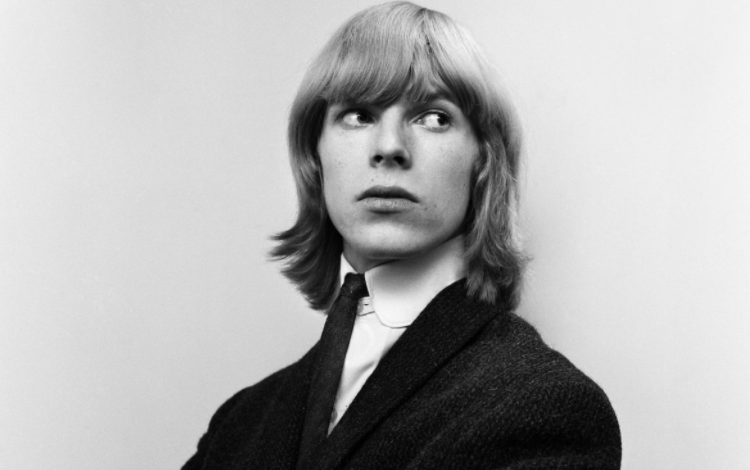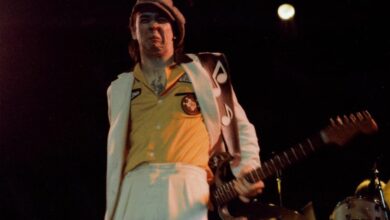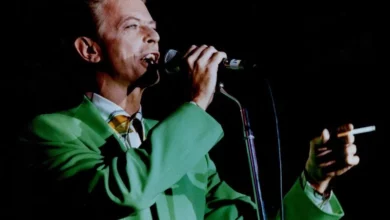David Bowie Formed a Society That Protected Long-Haired Men: ‘It’s Time We Were United and Stood up for Our Curls’

David Bowie was a music and fashion pioneer, but he was also a trailblazer among long-haired men. Before Bowie wowed audiences with his outrageous costumes and stage performances, he astounded his audiences simply by having long hair.
However, long-haired men received some flak for their luscious locks in the early 1960s. So much, actually, that Bowie took it upon himself to start a society to protect those like him.
A 17-year-old David Bowie established a society that protected long-haired men
In 1964, presenter Cliff Michelmore interviewed a 17-year-old Bowie, then still going by his given name, Davy Jones, for a segment of the BBC’s Tonight show. The special was examining a new phenomenon sweeping the nation; long-haired men.
“The rebellion of the longhairs is getting underway,” a balding Michelmore said (per Vogue). This was the perfect opportunity for Bowie, the founder of the Society for the Prevention of Cruelty to Long-Haired Men, to speak on behalf of his fellow long-haired men.
“I think we’re all fairly tolerant,” Bowie said around his group of friends with equally long hair. “But for the last two years, we’ve had comments like, ‘Darling!’ and ‘Can I carry your handbag?’ thrown at us, and I think it just has to stop now.”
“I think we all like long hair, and we don’t see why other people should persecute us because of this.”
Bowie played on the BBC on one condition
Whether the Society for the Prevention of Cruelty to Long-Haired Men was a publicity stunt or not, it was a cause that Bowie clearly wanted to fight for. He eventually performed on the BBC, too, on one condition, though.
Mashable wrote that if the BBC received a complaint from an audience member, the band’s fee would go to charity. It was the beginning of something that no one at the BBC or the world saw coming.
“In the mid-’60s, Bowie was surely having a laugh at the expense of the tightly-wound conservatives, but in retrospect his long-hair-don’t-care mentality was clearly a harbinger of what was to come,” Vogue wrote.
Those tightly-wound conservatives had no idea that in a few short years, their views on hair would be the least of their worries. The end of the 1960s and the 1970s saw significant changes in virtually everything, not just hair. Then, when Bowie’s glam rock took over, everything got even better.





